The 10 Largest UK Acquisitions of the Past Decade
Category: Data Insights
A company can exit the private market either through an IPO, merger, or through acquisition. There are many reasons why companies are acquired—competitor buyouts, to increase market share, to reduce costs through greater scale, to acquire technology and talent owned by another company, or simply because a founder wants to cash out of their business.
Today, we’re taking a look at the largest considerations paid for high-growth UK companies in the last decade. Since January 2011, 2,880 ambitious UK companies have exited the private market through an acquisition.
Here are some key stats:
- Out of 2,880 acquired companies, 580 (20%) were sold for an amount exceeding £1m
- 30% of the acquired companies were based in London
- 42% of the businesses were acquired by foreign companies
- Out of all acquired companies, 48% had received equity investment prior to acquisition
Additionally, a particularly high percentage of these companies reached 20% scaleup status prior to acquisition—about 35%. This is much higher than the percentage of overall 20% scaleups across all tracked companies, which is 20%. This suggests that companies growing at rates exceeding 20% year-on-year are far likelier to be acquired than others.
The majority of UK companies that exit are acquired by other UK companies—58% in total. The US dominates the foreign acquisition market, with US-based companies carrying out 21% of UK acquisitions since 2011. Other noteworthy countries include France and Germany, who each conducted 3% of total UK acquisitions. Out of the 10 largest acquisitions since 2011, seven were bought by non-UK companies.
The 10 largest UK acquisitions since 2011
1. Firth Rixson
Buyer: Alcoa
Transaction Amount: $2.85b (£1.82b)
Date of acquisition: November 2014
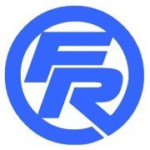
Firth Rixson is a large-scale manufacturer, specifically supplying products to the engineering sector. 73% of the company’s total business prior to acquisition was made up from aerospace jet engine components, and its products are used all across the aerospace industry—from commercial aircraft and bizjets to military aircraft and helicopters. Other target markets included the mining and oilfield sectors.
The company was acquired in 2014 for a total of $2.85b, of which $2.35b was paid in cash and $500m in common stock. An additional $150m was arranged from performance earn-out. Alcoa, the acquiring organisation, is the largest aluminium producer in the US. Firth Rixson continues to manufacture in the UK, but now trades as Arconic—a child company of Alcoa.
Firth Rixson was tracked on the Beauhurst platform after meeting two tracking triggers. Firstly, for achieving 20% scaleup status. Secondly, for appearing on a high-growth list—it featured on the Fast Track Top Track 100 for four years consecutively, between 2011-2014.
Firth Rixson was not a young company when acquired, however. It had been trading since 1837. Prior to acquisition, Firth Rixson employed around 2,400 people, with revenues forecasted to reach $1.6b in 2016. The parent organisation, Alcoa, has approximately 14,000 employees in 15 countries around the world, with a total revenue of $11.7b as of 2017.
2. FNZ
Buyer: Caisse de dépôt et placement du Québec (CDPQ)
Transaction Amount: $2.20b (£1.68b)
Date of acquisition: October 2018
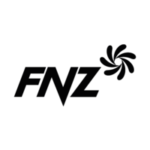
FNZ develops software for financial advisors, particularly in view of providing financial institutions with wealth management technology. The fintech company was founded in 2004 and today serves global corporations such as Lloyds Banking Group, Santander, Generali, and Barclays.
The company had met three of our tracking triggers prior to acquisition: undergoing an MBO/MBI, reaching 10% scaleup status, and 20% scaleup status. FNZ was initially founded in New Zealand, but set up its official headquarters in Edinburgh in 2005.
The company was acquired by Caisse de dépôt et placement du Québec (CDPQ) for £1.68b in October 2018. CDPQ is an institutional investor that manages multiple Canadian pension and insurance funds, and has around $333b (Canadian Dollars) in total assets invested around the globe. The acquisition transaction valued FNZ at well over $1b.
FNZ continues to trade under its original name and has offices all across the globe, including the UK, Australia, China, Germany, Italy, Singapore, South Africa, and more. It employs around 3,000 people, with a reported annual revenue of around $147m per year.
3. Skyscanner
Buyer: Ctrip International
Transaction Amount: £1.40b
Date of acquisition: November 2016

Skyscanner operates an online travel comparison website. It allows the user to compare flights, hotels, and car hire, allowing customers to book and plan flights directly. Skyscanner’s unique selling point is the ability to cross-match prices across over 600 partners and sources, ensuring users are securing the best rates. The site is free at point of use, and at peak times is used by over 50 million people per month.
Skyscanner is based in Edinburgh and was founded in 2001. Prior to acquisition, the company had raised £128m across five funding rounds from investors Artemis, Vitruvian Partners, Baillie Gifford, Khazanah Nasional Berhad, Sequoia Capital, and Yahoo! Japan. It has also attended two accelerators: ELITE and the Future Fifty. It also reached 20% scaleup status, and featured on numerous high-growth lists, such as the Deloitte Fast 50 and 1000 Companies to Inspire Britain.
The company was acquired by Chinese-based company Ctrip, an international travel agency that specialises in solo clients—targeting both business and leisure travellers. The total consideration paid was £1.4b, making Skyscanner Scotland’s first unicorn company. The deal was predominantly paid in cash, and is the largest travel technology acquisition in Europe to date.
Ctrip allows Skyscanner to continue operating independently, and the company is now available in over 30 languages and accepts over 70 currencies. To date, it has over 700 employees working in offices across the globe, including Barcelona, Beijing, Budapest, London, Miami, Singapore, and Edinburgh.
4. Synergy
Buyer: STERIS
Transaction Amount:
$1.90b (£1.23b)
Date of acquisition: November 2015
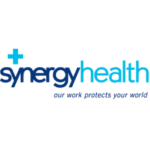
Synergy operated a health sector outsourcing company, specialising in sterilising medical devices for hospitals and manufacturers. Synergy had not secured any equity investment prior to acquisition, but had met 20% scaleup status and attended an accelerator—the Business Growth Programme.
It was acquired in 2015 by US-based pharmaceutical and medical company STERIS for $1.90b. STERIS provides a range of medical products to the healthcare and pharmaceutical research sectors, particularly surgical implements and infection prevention products. Walt Rosebrough, CEO of Steris, commented that the move better-positioned both companies to “provide comprehensive solutions to medical device companies, pharmaceutical companies, and hospitals around the world”.
The transaction was completed through a mixture of cash and stock, totalling approximately £1.23b. Following this, the combined annual revenue of STERIS and Synergy sat at around $2.6b, generated in over 60 countries. Today, this is more like $2.8b. STERIS now employs around 14,000 employees. Synergy now trades under STERIS.
5. We Buy Any Car
Buyer: BCA Marketplace
Transaction Amount: £1.20b
Date of acquisition: May 2013

We Buy Any Car offers buying services for a range of vehicles. The Surrey-based company was founded in 2006 by Noel and Darren McKee to provide the public with an alternative method of valuing and selling cars. The company was yet another 20% scaleup prior to acquisition, and appeared on a number of high-growth lists, such as the Fast Track Tech Track 100 in 2011.
It was acquired by British Car Auctions (BCA) Marketplace, an automotive auction and supply chain company that has been active since 1946. BCA also offers a number of other services like pricing, vehicle collection, and storage. The company paid £1.20b in cash for the acquisition, which enabled We Buy Any Car to pay down debt and allow its private equity owner to exit.
Since purchasing We Buy Any Car in 2013, BCA floated on the London Stock Exchange in 2015, and was then subsequently acquired by TDR Capital for £1.9b in 2019. Despite a history of changing ownership, We Buy Any Car has continued to trade with its original branding and now has over 350 branches across the UK, employing over 700 people. It announced in 2020 that it had bought over 2 million vehicles in total since it started trading.
6. Callcredit
Buyer: TransUnion
Transaction Amount: £1.00b
Date of acquisition: July 2018
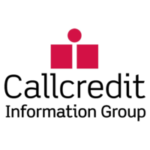
Callcredit Information Group was a credit reference agency that managed consumer data for a variety of industries, helping clients to develop tailored products and provide better services. The company was founded in Leeds in 2000. It was acquired by TransUnion—one of the “Big Three” credit agencies alongside Experian and Equifax—in 2018, a company that provides risk information and credit reporting services, aiming to better inform its clients with regards to risk based decisions. Since the acquisition, Callcredit trades as TransUnion.
Prior to acquisition, Callcredit had acquired eight companies itself, primarily digital security and customer data management companies, such as Confirma, Recipero, Numbero, and TenantID. The company also reached 20% scaleup status and appeared on several high-growth lists over the years, such as the Fast Track Top Track 250 from 2015-2017. Callcredit had also undergone two management buy-ins. The first was in 2009 by private equity firm Vitruvian Partners. Then, in 2014, Chicago-based equity firm CTCR bought into Vitruvian’s majority stake.
In 2019, TransUnion launched an Open Banking platform to help businesses make lending decisions based on customer insights. Moving forward, Callcredit, incorporated under TransUnion, will serve industries like banking and retail to help manage customer relationships and provide data to industry players.
TransUnion now employs approximately over 8,000 people in total, working in offices in over 30 countries including Japan, China, Dubai and Lithuania.
7. Bond Aviation Group
Buyer: Babcock International
Transaction Amount: £920m
Date of acquisition: March 2014

Bond Aviation Group offered a range of engineering and support services, specialising in helicopter support, marine engineering and nuclear decommissioning. It specialised particularly in life and rescue, and safety and environment services to blue-chip corporations and public administrations. The company was founded in Aberdeen in 1961 by the late David Bond, a WW2 Lancaster pilot.
Bond Aviation was first acquired by global search and rescue helicopter firm, Avincis, in 2011 for a sum of £300m. Avincis, with Bond Aviation under the ownership, was then acquired by UK company Babcock International in 2014 for a total of £920m.
Babcock provides a range of engineering services to key UK sectors, such as marine and aviation. Since the acquisition, Bond Aviation has been renamed Babcock Mission Critical Services Offshore. The acquisition came with £705m of debt for Avincis, following damage claims from an incident involving a Glasgow pub and leased Bond helicopter in 2014.
The company appeared on the Fast Track Profit Track 100 list in 2011. To date, Babcock International has over 34,000 employees across the world, with an operating profit of £524m as of 2020.
8. Chiltern
Buyer: LabCorp
Transaction Amount: $1.20b (£909m)
Date of acquisition: July 2017
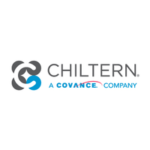
Chiltern provides outsourced clinical research services to its clients. Before acquisition, Chiltern had organised over 2,000 clinical trials on behalf of others, working closely with sectors such as pharmaceuticals, biotech, and medical diagnostics. The company had a particular focus on testing new cancer therapies. It was founded in Slough in 1982.
Prior to acquisition, Chiltern had achieved a projected revenue of $550m by 2017 and had reached 20% scaleup status. It had also appeared on a number of high-growth lists, including the Fast Track Top Track 250 in 2015 and 2016.
In 2017, Chiltern was acquired by US-based Labcorp for £909m in cash. LabCorp, a global S&P 500 company, operates a lab network that provides lab testing services to a number of different clients. Chiltern was acquired as part of LabCorp’s wider efforts to accelerate its drug development research and technology, alongside efforts from child company Covance. When Chiltern was acquired, it merged executive teams with Covance, and today trades as “Chiltern: a Covance Company”. LabCorp is the overall parent organisation.
Together, Labcorp and all of its subsidiary companies have more than 60,000 employees across over 60 countries, with a projected revenue of $11.33b.
9. Sauflon Pharmaceuticals
Buyer: The Cooper Companies
Transaction Amount £700m
Date of acquisition: July 2014
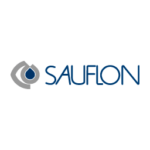
Sauflon Pharmaceuticals manufactures a range of contact lenses and other eye care products, such as contact lens care. Before acquisition, it already had three manufacturing plants with staff in 10 countries, selling to over 50 countries worldwide. The company was founded in 1985 in Twickenham.
It was acquired by US-based Cooper Companies, which develops and provides healthcare products and services, with specific focus on vision care and women’s health. $1.2b, or around £700m, was paid in consideration. Sauflon’s founder Alan Well added an estimated £280m to his fortune from relinquishing his shares following the acquisition, making him one of Britain’s richest men at the time of sale.
Prior to acquisition, Sauflon had achieved a forecasted revenue of approximately $210m for the 2014 fiscal year—which was up approximately 22% year-over-year, firmly establishing the company as a scaleup.
Following acquisition, Cooper Companies further cemented itself as the world-leading provider of disposable contact lenses, with additional manufacturing resources, staff, and technology. The Cooper Companies now employs over 12,000 people across its two branches, Cooper Vision and Cooper Surgical, and reported a $652m annual revenue in 2020.
10. Miller Homes
Buyer: Bridgepoint Development Capital
Transaction Amount £655m
Date of acquisition: August 2017

Miller Homes builds a range of residential properties, and was established all the way back in 1934 in Derbyshire. Miller Homes is one of the largest house-construction companies in the UK. It’s particularly active in the Midlands, the North, and Scotland, with a focus on sustainable development in suburban areas. In 2016—a year before acquisition—Miller Homes built a total of 2,380 homes and generated a revenue of £565m.
It was acquired by Bridgepoint Development Capital, a €4 billion European middle-market private equity group, for £655m in 2017. The acquisition allowed the Miller family to end their direct involvement with Miller Homes and cash out. The company continues to operate under its original branding.
Bridgepoint has over £16b in total assets, with investments in household names like Hobbycraft, Pret a Manger, and Deliveroo. Bridgepoint is a part of NatWest and was originally named NatWest Equity Partners, until a management buyout in 2000. Miller homes reported an independent revenue of £841m in 2020, with an operating profit of £168m. It employs over 1,000 people across the UK.
Discover the UK's most innovative companies.
Get access to unrivalled data on all the businesses you need to know about, so you can approach the right leads, at the right time.
Book a 40 minute demo to see all the key features of the Beauhurst platform, plus the depth and breadth of data available.
An associate will work with you to build a sophisticated search, returning a dynamic list of organisations matching your ideal client.